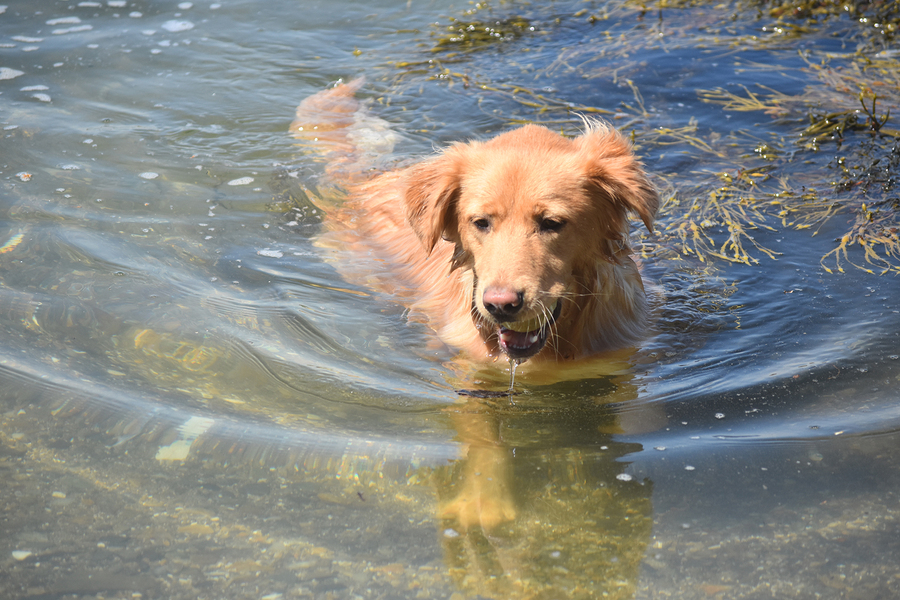Giardia is a very difficult parasite to cure in dogs. Here’s what I told a reader who asked me about her dog’s diagnosis.
Q: My dog doesn’t seem to keep any weight on and has been having occasional diarrhea for no apparent reason. I took in a fecal sample and it showed that he had been exposed to giardia. What can you tell me about this?
A: Giardia is a tricky parasite. The single-celled protozoan can infect most domestic and wild animals, as well as humans, although the canine form is not transmitted from dogs to humans. Infection with giardia has been reported in up to 39 percent of fecal samples from both pet dogs and cats and animals in shelters. It’s most common in puppies, but can also affect older dogs.
Animals become infected with giardia when they ingest water that has been contaminated with feces. The flagellate — meaning whiplike — protozoans then take up residence in the small intestine, attaching to mucosal surfaces and absorbing nutrients that come through. When they reproduce, cysts pass in the feces to contaminate the environment and further spread the infection. Transmission occurs by what we call the fecal-oral route — ingestion of contaminated feces in water or other substances. Even a small amount is enough to give giardia a foothold in the body. High humidity helps ensure that the cysts survive in the environment, and overcrowding, whether in a shelter or kennel, aids transmission.
Many dogs with giardiasis show no signs, but others, like your dog, may lose weight or have chronic diarrhea. Vomiting can also be a sign. The parasite doesn’t always show up in stool samples, and veterinarians may need to do blood work to rule out conditions with similar signs such as exocrine pancreatic insufficiency or other cause of intestinal malabsorption.
Your veterinarian may prescribe a dewormer or antibiotic — or a combination of the two — followed by a recheck of a stool sample.
Read more, including how to recognize and manage separation anxiety, in our weekly Pet Connection feature!


